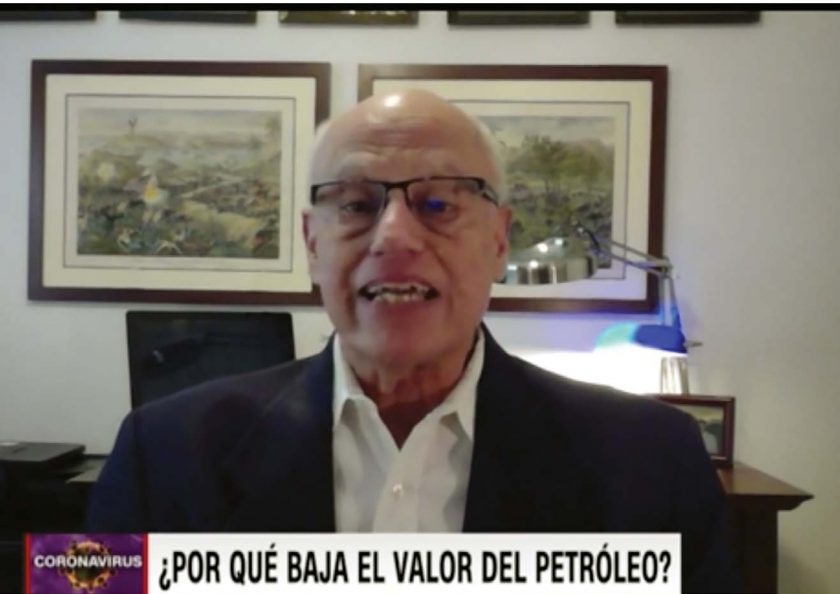Newsmakers
November 12, 2020
Jackson School of Geosciences researchers made science news headlines and served as expert sources for news stories across the state and the world. Check out a few of the highlights.


In The News
Natural Gas Oversupply Results in Exceptionally Low Prices
“Demand for natural gas has been growing more than any other fuel in absolute terms. Over the past 40 years, gas use has increased more than 500% globally. That is a remarkable growth rate.”
Scott Tinker
Director, Bureau of Economic Geology
MSN Money, June 6, 2020
Iron ‘Snow’ Could Be Falling in Earth’s Core, Study Shows
“It’s sort of a bizarre thing to think about. You have crystals within the outer core snowing down onto the inner core over a distance of several hundred kilometers.”
Nick Dygert
Distinguished Postdoctoral Fellow, Department of Geological Sciences (now an Assistant Professor at the University of Tennessee)
Fox News, Dec. 20, 2019
Reusing Oil Field Wastewater is Key to Shale’s Future, Researchers Say
“The water volumes that are quoted vary widely, that’s why we did this study. This really provides a quantitative analysis of hydraulic fracturing water demand and produced water volumes.”
Bridget Scanlon
Senior Research Scientist, Bureau of Economic Geology
San Antonio Express-News, Feb. 21, 2020
Dinosaur Asteroid’s Trajectory was ‘Perfect Storm’
“Also critical is that a 60-degree angle is in the range of the worst options for injecting large volumes of vaporized and ejected sulphur-rich rocks into the atmosphere. Thus these results are critical for understanding potential kill mechanisms.”
Sean Gulick
Research Professor, University of Texas Institute for Geophysics and Department of Geological Sciences
BBC, May 26, 2020
Scientists Discover Ocean Carbon Dioxide Hotspot off Philippines
“These high carbon dioxide environments that are actually close to thriving reefs, how does it work? Life is still thriving there, but perhaps not the kind that we are used to. They need to be studied.”
Bayani Cardenas
Professor, Department of Geological Sciences
Oceanographic Magazine, March 27, 2020
Arizona Rock Offers Clues to Chaotic Earth of 200 Million Years Ago
“The core lets us wind the clock back when the Petrified Forest National Park was a tropical hothouse populated by crocodile like reptiles and turkey-size early dinosaurs. We can now begin to interpret changes in the fossil record, such as whether changes at the time were caused by an asteroid impact or slow geographic changes of the supercontinent drifting apart.”
Cornelia Rasmussen
Research Associate, University of Texas Institute for Geophysics
Mirage News Australia, July 20, 2020
A Deep-Sea Magma Monster Gets a Body Scan
“I don’t think I’ve ever been on a cruise where everything goes smoothly. You’re always losing instruments.”
Adrien Arnulf
Research Associate, University of Texas Institute for Geophysics
New York Times, Dec. 3, 2019
Life Hatched From Soft Eggs, Some a Foot Long, in Dinosaur Era
“That’s what really surprised us, because we didn’t think that soft-shelled eggs could grow that big without collapsing. We didn’t think there were animals that large that might have laid soft-shelled eggs.”
Lucas Legendre
Postdoctoral Fellow, Department of Geological Sciences
New York Times, June 17, 2020
New Study Blames Some Permian Basin Earthquakes on Fracking
“The research done through this new study in West Texas, using a statistical approach to associate seismicity with oil and gas operations, suggests that some seismicity is more likely related to hydraulic fracturing than saltwater disposal.”
Alexandros Savvaidis
Research Scientist, Bureau of Economic Geology
Houston Chronicle, Oct. 15, 2019
Texas Students Join Global Climate Strike
“With climate change, one of the predictions of climate science is that areas that are prone to extremes in the hydrological cycles, that is droughts and floods, will be prone to even more extremes, so more intense storms and more intense droughts. We’ve been seeing that. We’ve been seeing that in the last several years.”
Jay Banner
Director, Environmental Science Institute
KETK, Sept. 20, 2019
Eclectic Rocks Influence Earthquake Types
“The next needed steps are to continue installing offshore instruments at subduction zones in New Zealand and elsewhere so we can closely monitor these large offshore faults, ultimately helping communities to be better prepared for future earthquakes and tsunami.”
Laura Wallace
Research Scientist, University of Texas Institute for Geophysics
Science Daily, March 25, 2020
Climate Change may Kickstart Dormant El Niño Weather System in Indian Ocean
“The re-emergence will depend strongly on the rate of global warming, so ultimately on whether greenhouse gas emissions are abated or not. We are certain that the risks of these extreme events is becoming larger and larger as we pump more CO2 into the atmosphere, and certainly going to have an unequal impact on countries in the tropics.”
Pedro DiNezio
Research Scientist, University of Texas Institute for Geophysics (now Associate Professor at University of Colorado Boulder)
Independent, May 12, 2020
Scientists Find the Biggest Soft-Shelled Egg Ever, Nicknamed ‘The Thing’
“It was weird enough that they decided to collect it, even though it wasn’t clear what it was. It definitely wasn’t bone, but it was strikingly unusual.”
Julia Clarke
Professor, Department of Geological Sciences
NPR, June 17, 2020
The Best Fossils Need a Bit of Fresh Air to Form
“The cool thing about this work is that we can now understand the modes of formation of these different minerals as this organism fossilizes. A particular pathway can tell you about the oxygen conditions.”
Rowan Martindale
Associate Professor, Department of Geological Sciences
Futurity, Nov. 6, 2019
